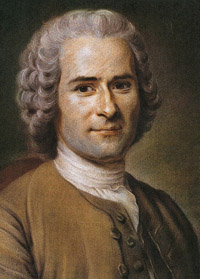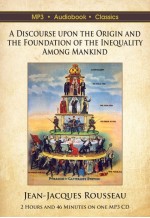Jean-Jaques Rousseau
| Jean-Jacques Rousseau (June 28, 1712 – July 2, 1778) was a Swiss
writer, philosopher and composer who was an important influence in the
development of political, social, economic, and educational thought
during the Enlightenment. His works include A Discourse on Inequality and The Social Contract,
foundations of modern political and social theory; Emile, or On
Education, an educational treatise on the place of the individual in
society; his novel, Julie, or the New Heliose, a huge best seller
that prefigured romanticism; and his Confessions, the first modern
autobiography. Rousseau was raised in unusually difficult and volatile
circumstances, which persisted throughout his life even as he achieved
renown, and no doubt contributed to the originality and honesty in his
thinking. Will and Ariel Durant wrote that he was “born poor, losing his
mother at birth and soon deserted by his father, afflicted with a
painful and humiliating disease, left to wander for twelve years among
alien cities and conflicting faiths, repudiated by society and
civilization, repudiating Voltaire, Diderot, the Encyclopédie and the Age of Reason,
driven from place to place as a dangerous rebel, suspected of crime and
insanity, and seeing, in his last months, the apotheosis of his
greatest enemy.” In spite of these disadvantages, he “triumphed over
Voltaire, revived religion, transformed education, elevated the morals
of France, inspired the Romantic movement and the French Revolution…
and, altogether, had more effect upon posterity than any other writer or
thinker of that eighteenth century in which writers were more
influential than they had ever been before”. |
A Discourse Upon the Origin and the Foundation of the Inequality Among Mankind
Jean-Jacques Rousseau wrote A Discourse Upon the Origin and the Foundations of Inequality Among Men ..
$9.99


